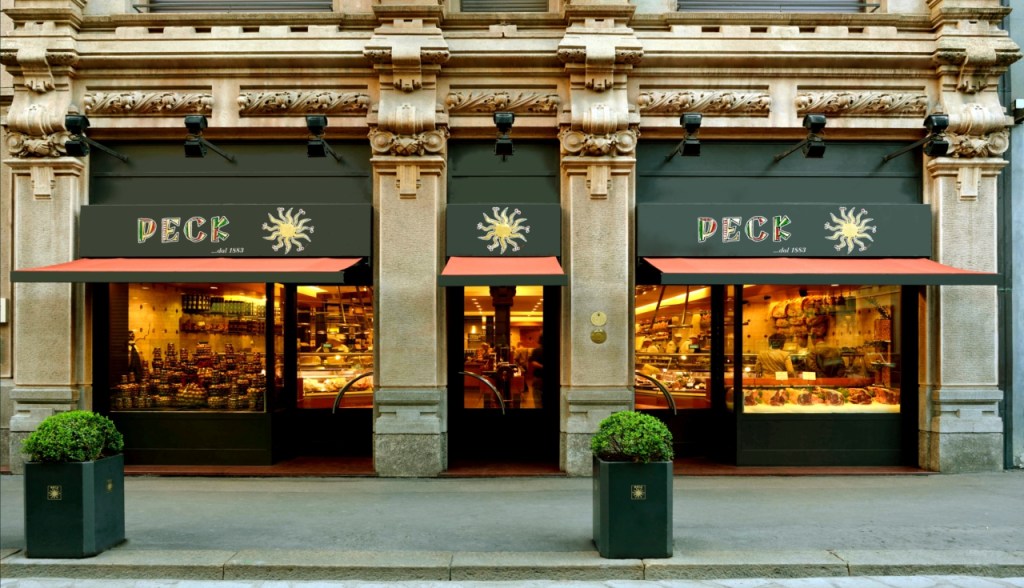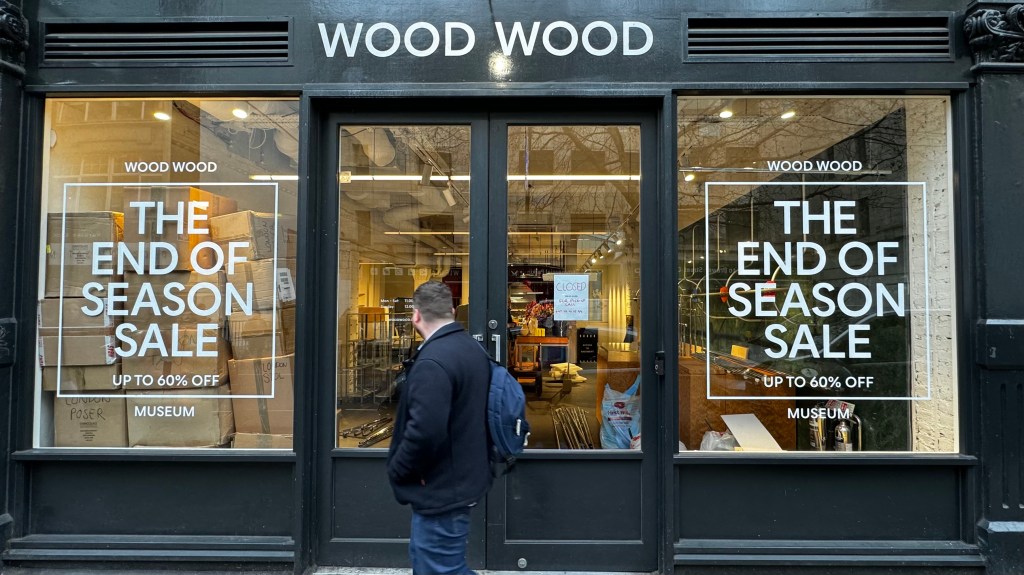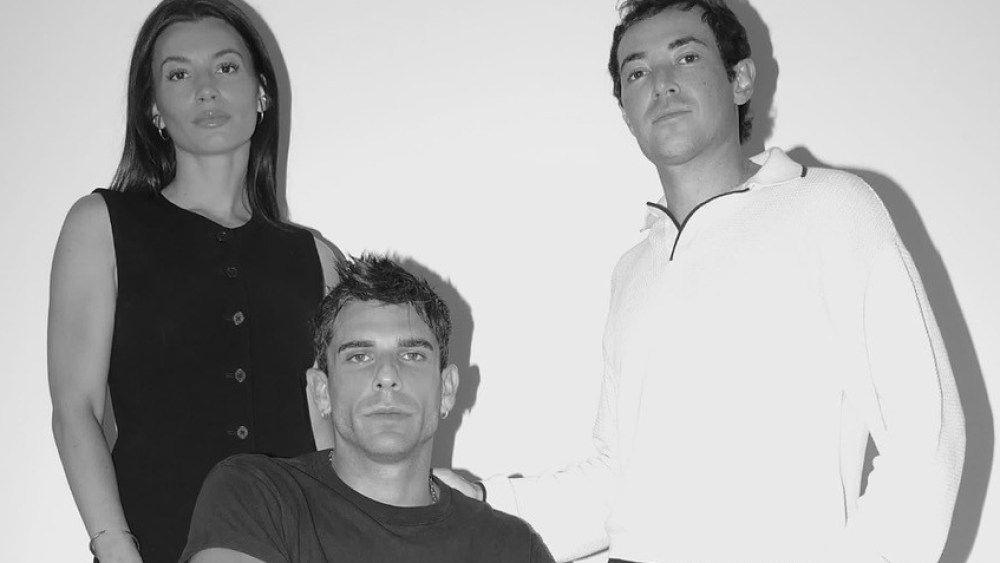Time machines still have to be invented, but stepping into Peck offers a similar experience. Once inside the glass doors of the gastronomic institution nestled in the heart of Milan, a visitor discovers traditionally Italian delicatessen offerings or culinary specialties tracing back to the city’s economic boom in the ‘80s, not to mention various counters offering everything from meat to cheese, fresh pasta to veggies, pastries to chocolate.
The outside clanking of trams and frenzy of the nearby Via Torino shopping street vanish in a distant echo, replaced by the gentle manner and recommendations of the formally dressed Peck staff — their solicitousness more like the friendliness seen in small towns rather than the tourist epicenter of a big city.
These are some of the ingredients that have made Peck stand the test of time since it was founded in 1883, when Franz Peck, a maker of cold-cuts from Prague, decided to open a workshop of German-style cured and smoked meats. Throughout the decades the company has passed under the control of four different owners, expanded locations and assortment, ultimately growing but never losing its charm.
While Peck’s offerings may cause visitors to ooh and aah, even more captivating is what takes place behind the scenes in its 21,527-square-foot kitchens, where a quiet choreography is performed every day from dawn.
The rhythmic cutting of zucchini alternates with the speedy rolling of pasta dough for fresh ravioli, while the meticulous cleaning of seafood takes place next to preparations of Italian dishes such as tripe or cassoeula stew. Everything that is served daily at the deli counter is made locally, with a weekly menu tabled on Thursdays that mixes traditional and seasonal dishes.

Adjacent to the main kitchen, a small area is dedicated to all chocolate-based recipes, including Peck’s large assortment of pralines and — at press time in November — the first prototypes of treats for the holiday season, such as Santa Claus-shaped chocolate sculptures or chocolate Christmas trees dotted with dried fruits.
A bigger area serves as the reign of pastry chef Attilio Rebeccani, who oversees the rich supply of tea biscuits, cakes and single-portion pastries. These range from classic tiramisu and raspberry cheesecake to the caramel- and apple-based Cara-mela recipe and Peck’s distinctive Absolute Chocolate cake with three layers of chocolate, which remains a best seller since its introduction 18 years ago.

But the store’s real heart is hidden deeper underground, with an extensive floor divided into different sections dedicated to specific productions, not only of fresh ingredients and deli treats but also of packaged goods that supply all the company’s outposts, including the stores in Milan’s Porta Venezia and CityLife areas as well as the unit at luxury resort destination Forte dei Marmi, in Tuscany.
Mozzarella production in the heart of Milan? Unknown to most locals, it takes place every Wednesday morning in Peck’s caveau (literally, the space formerly housed a bank, which an original vault still proves). This joins the making of fresh cheeses such as ricotta and robiola; Peck’s signature cheese quiches, like the one that blends gorgonzola, mascarpone and walnuts, and cheese wheels stored in a dedicated cellar, ranging from Parmigiano Reggiano to Storico Rebelle, which add to the selection of 250 different dairy products offered at the store.
Ditto for the butchery area, the kingdom of Peck’s head butcher and charcutier Paolo Schiavone, who has been at the company for more than 30 years. Specialties here include homemade bresaola, one of Peck’s signature products that is salted and marinated with a secret mix of spices and that ages in a dedicated refrigerated section for an average of 90 days versus the usual 30. Parma ham, regional sausages and roasted chickens accompany the production of Peck’s signature veal in tuna sauce, basil pesto or ragù, as well as delicatessen demanded especially during Christmas time, like veal galantine with truffle and game pâté.

The store’s high season takes place between Dec. 17 and 24, but begins building even before then. For this busy month, the staff of 120 employees grows to 170, with veterans returning to flank new talents that the company begins to hire in September and train in October. This is an aspect Peck’s chief executive officer Leone Marzotto takes particular pride in, as he notes that despite the challenges of finding professionals in restoration and hospitality in Milan — where there are 10,000 job openings, he says — the company manages to attract new generations thanks to its standing and because it offers opportunities to grow.

The textile Marzotto family acquired Peck in 2013, laying the foundation of its expansion in the city and a further elevation of its positioning. For one, at the end of 2018, a 3,230-square-foot unit comprising a deli-shop, restaurant, winery and cocktail bar opened in the CityLife area as a signal of Peck putting a foot in the “new” Milan.
This unit was followed by the little deli shop in the Porta Venezia area and the 1,615-square-foot store in Forte dei Marmi, while outside Italy there is a store in Singapore and Peck has a longstanding relationship with Japan, a market it first entered in 1986 with a collaboration with the Takashimaya group and where it now has 18 corners and shops-in-shop.

But similar expansion isn’t in sight. Although third parties have expressed interest in taking Peck to the Middle East, Marzotto highlights that “it’s not easy to find the right partner, especially for us. We’re not a chain that can be easily replicated. We have a different philosophy rooted in artisanship.”
The company’s full focus is on consolidating and further enhancing its presence in Italy, as Marzotto still sees a lot of untapped potential in the market.
“We have customers who are like fetishists of individual products, such as our pistachio ice cream or pâté. They have the habit of considering them as the special treat they come and buy at Peck. So our potential lies in offering them what in fashion is the so-called total look,” he notes.
The executive stresses the importance of guiding clients in discovering all the artisanship behind Peck’s assortment.

For example, the store leverages its scouting skills and relationship with small local producers to offer treats that can’t be found elsewhere, like hand-picked mignon baby artichokes in extra virgin olive oil jars and with a price tag of 120 euros. Peck has also recently introduced a line of vacuum-sealed products to offer customers solutions with a longer shelf life but without preservatives and that are easy to cook at home.
Wine is another category to leverage. Peck’s wine cellar is among the most complete in Italy with more than 3,500 labels across international red, white and rosé wines, Champagne, liquors and spirits. It stands out for its wide price positioning too, with bottles retailing from 12 euros up to 50,000 euros for one out of 11 bottles of a 15-liter bottle of Masseto red wine worldwide. Starting this month, special editions of Ca’ del Bosco with the Peck brand will be joined by exclusive bottles of pinot noir with a label celebrating the company’s 140th anniversary.
“We truly have a cellar that has no equal in the country, with rare bottles that few can boast in Italy. So we can offer our clients exclusives or editorial contents to explain everything we do,” Marzotto says about strategies he’s looking to implement to further engage consumers.
“Attention to service has always been in our DNA but there are a series of tools consolidated in fashion retail that we want to introduce in food retail, too, like CRM strategies and more proactive ways to improve customer loyalty,” he adds.

Peck can already count on a loyal Milanese clientele who visit the store on average three times a week, while tourists account for 30 percent of the company’s total sales, which it declined to disclose.
During the lockdown, the company expanded its reach by introducing a home delivery service and setting up e-commerce for Europe. “We still do home deliveries but those who had the habit to shop at the store, still prefer the physical experience,” says Marzotto, who looks at alternative solutions to the online channel.
“We don’t believe in the traditional e-commerce. I don’t think it’s in tune with our business because on one hand we would compete with those who have much more budget for digital marketing…on the other, it kind of flattens the diversity of the offer, meaning that a jar of tomato sauce looks the same on [different websites],” the executive says.
“We believe more in a concierge format,” he continues, explaining how shoppers phone their trusted sales assistant or Peck’s customer service and get one-to-one shopping suggestions before compiling their orders and have goods delivered. Marzotto aims to expand it by, for example, emailing the weekly menu or information on fresh products. The catering and special events businesses are also seen as areas of growth.

“If we think at competitors in single categories, like patisseries, there are some names we can steal market shares from. But being a multi-business makes us a brand with no competitors nor comparable, overall,” Marzotto says. “I don’t think there’s another brand like us in terms of artisanship and history, or combining competence in product with a different kind of vision in serving the client. We’re quite a unicorn in this sense.”



